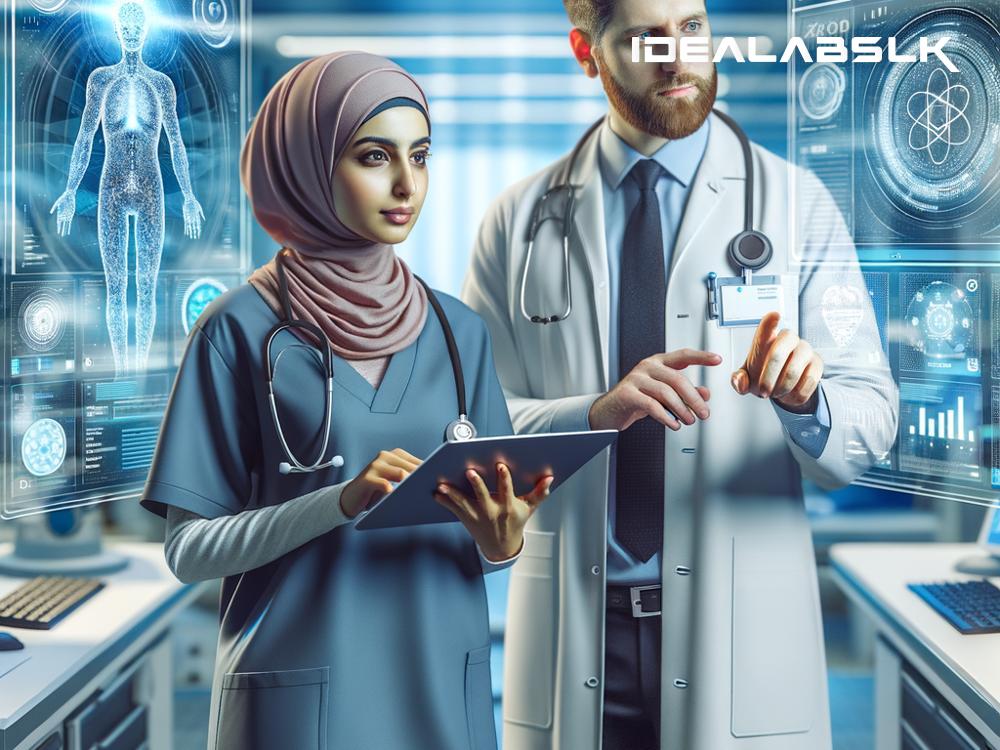The Future of Medicine: Navigating AI Integration Challenges in 2025
In the fast-paced world of healthcare, a revolution is on the horizon. By 2025, the integration of Artificial Intelligence (AI) into healthcare promises to transform how we diagnose, treat, and manage diseases. While this technological evolution brings a wave of optimism, it also presents a maze of challenges that healthcare professionals, patients, and tech developers must navigate together. Let's dive into what to expect and how we can prepare for the seamless integration of AI into healthcare in the near future.
Understanding the AI Revolution in Healthcare
Before we tackle the challenges, let's understand what AI in healthcare looks like. AI encompasses technologies that mimic human intelligence to perform tasks and can continuously improve themselves based on the information they collect. In healthcare, this could mean anything from AI systems that help diagnose diseases from imaging scans more accurately than human eyes, to chatbots that provide mental health support, to robots assisting in surgeries with precision beyond human capabilities.
The Roadblocks Ahead
As exciting as it sounds, merging AI with healthcare doesn't come without its hurdles. Here are some of the main challenges we'll need to overcome by 2025:
-
Data Privacy and Security Concerns: The backbone of AI in healthcare is data. The more data AI systems can access, the more accurate they become. However, this raises significant privacy and security concerns. Patient data is highly sensitive, and the risk of breaches could deter people from trusting AI systems with their information. Ensuring robust security measures and transparent data usage policies will be crucial to gain public trust.
-
Ethical and Bias Issues: AI systems learn from the data they're fed. If this data is biased, the AI's decisions will be too. This could lead to unfair treatment recommendations or diagnostic conclusions. Establishing ethical guidelines and diversifying data sources to train AI systems will be vital to ensure fairness and accuracy.
-
Regulatory Hurdles: The healthcare sector is among the most regulated industries worldwide. Introducing new technologies like AI requires navigating a complex web of regulatory approvals, which can be time-consuming and costly. By 2025, there will be a need for updated regulations that embrace innovation while ensuring patient safety.
-
Integration with Existing Systems: Healthcare facilities already use numerous systems and technologies. Integrating AI solutions into this existing ecosystem without disrupting workflows will be a significant challenge. Solutions must be user-friendly and complement existing practices to be adopted smoothly.
-
Skill Gaps and Training Needs: The successful integration of AI in healthcare also hinges on the availability of professionals skilled in both healthcare and AI technologies. The current workforce needs more training to keep pace with these technological advancements, indicating a pressing need for education and training programs that bridge this gap.
What Can We Do to Prepare for 2025?
The journey to 2025 requires concerted efforts from all stakeholders involved. Here's how we can prepare for the future:
-
Promoting Data Privacy and Security: Developing and enforcing strict data protection laws will be crucial. Additionally, AI companies must prioritize building secure systems and educating users on data privacy.
-
Addressing Ethical and Bias Issues: Creating diverse teams to train AI systems and establishing ethical guidelines for AI use in healthcare can help mitigate bias and ethical concerns.
-
Simplifying the Regulatory Pathway: Regulators and innovators must collaborate to streamline approval processes for AI technologies while maintaining high safety standards.
-
Fostering Interoperability: Encouraging the development of AI solutions that are compatible with existing healthcare technologies will ease integration challenges.
-
Investing in Education and Training: Educational institutions and healthcare organizations must invest in training programs that equip healthcare professionals with the necessary AI knowledge and skills.
Looking Ahead
The integration of AI into healthcare by 2025 is not just a possibility; it's a necessity to enhance patient care and meet the growing demands on healthcare systems. Despite the challenges, the potential benefits for diagnosis, treatment, and patient care are unparalleled. By addressing these hurdles head-on, we can unlock the full potential of AI in healthcare and pave the way for a future where technology and healthcare go hand in hand for the betterment of society.

